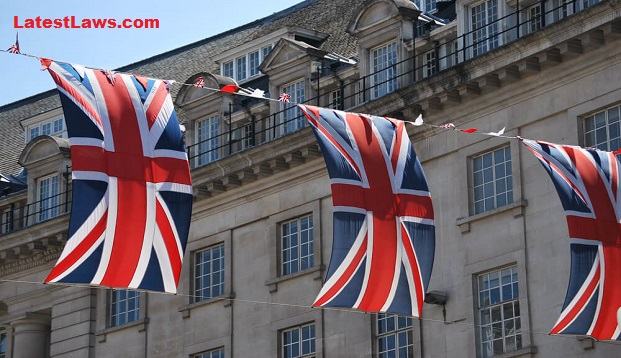UK Court rejects KZF member Kuldeep Singh’s extradition to India

The Westminster Magistrates&rsquo Court has turned down India&rsquos request to extradite alleged Sikh terrorist and member of the banned terrorist outfit Khalistan Zindabad Force, Kuldeep Singh aka Keepa Singh, presently residing in Britain.
He is charged in India with plotting assassinations in Punjab including that of former chief minister Prakash Singh Badal and his deputy Sukhbir Singh Badal, raising funds for and recruiting people to commit terrorist offences, organising meetings to plot assassinations in a gurudwara and arranging arms and ammunition for terrorist offences.
District judge Gareth Branston rejected the extradition request on the basis that, if convicted, Singh would face life imprisonment until death without any chance of early release, which is against his human rights, and also because much of the evidence was in his view &ldquoinadmissible&rdquo.
&ldquoWhilst clearly very serious allegations, there is no evidence that anyone was actually killed as a result of his alleged activities,&rdquo Branston ruled.
The allegations against Singh, 44, are that between 2015 and August 2016 he entered into a conspiracy to murder named individuals and carry out serial bomb attacks in the Punjab region and that he was directing these activities from the UK via the internet and WhatsApp.
According to the judgment, the conspiracy included a plot to assassinate &ldquothe Gagneja chief of RSS&rdquo, which was hatched with &ldquochiefs of IS in Lahore&rdquo, as well as to murder Manjinder Singh Sirsa (member of Delhi Gurudwara Prabandhak Committee), RSS activists, a person who had a kerosene oil depot in Patiala, and a person called Gurmeet Singh.
Singh was arrested on October 15, 2019 at Loughborough Immigration Reporting Centre on an extradition arrest warrant.
The court was told that Singh took instructions from KZF head Ranjit Singh Neeta, who is living in Pakistan, and his Belgium-resident associate. It also heard that he had arranged for arms and ammunition to be delivered to individuals involved in the conspiracy as well as directed for funds to be paid to them.
The plot also included plans to assassinate Prakash Singh Badal and Sukhbir Singh Badal and other eminent and political leaders of the state, to revive the Khalistan movement and carry out serial bomb blasts.
The court heard that Singh played a significant role in the conspiracy and the activities were being financed by individuals in foreign countries and that he and his co-accused were seeking to recruit youths into the banned outfit.
The court heard that on one occasion Singh directed Khalistani activists to meet at a gurudwara in Vaironangal village where they were instructed to kill MLA Bikramjit Singh Majithia, then a cabinet minister in the Punjab government, as well as Sukhbir Singh Badal.
Dr. V. Suresh, an advocate of Madras High Court, appeared as an expert witness and said that if convicted in India, Singh would likely be sentenced to life imprisonment and that it &ldquomeans imprisonment until natural death in India&rdquo.
Branston said this put Singh &ldquoat real risk of a sentence which would be in contravention of Article 3 (of the European Convention on Human Rights)&rdquo and &ldquowould plainly be grossly disproportionate to the offending alleged.&rdquo
In addition, he found the evidence of two co-accused Gurpal Singh and Major Singh inadmissible as they were &ldquoreports/summaries of out-of-court accusations made by co-accused against this requested person&rdquo which were unsigned and not given on oath. &ldquoThere is insufficient material remaining to find a prima facie case,&rdquo he ruled.
A spokesperson for the Crown Prosecution Service, which is representing the Indian government, said, &ldquoWe have appealed the decision to discharge Mr. Singh. We haven&rsquot had the permission decision yet.&rdquo
Indian advocates submit evidence. Arjun Sheoran, an advocate of the High Court of Punjab and Haryana, and Dr. V. Suresh, advocate of the Madras High Court, submitted evidence on the condition of Indian jails at the extradition hearing.
The court heard that Singh would most likely be held on remand in the Central Jail at Amritsar and in the maximum security jail in Nabha, if convicted.
Sheoran told the court that condition of the jails in Punjab were &ldquodeplorable&rdquo and described the assurance from the Government of India about Singh&rsquos likely prison conditions as &ldquomisleading and wrong&rdquo and not in accordance with the Punjab Jail Manual.
Dr. Suresh gave evidence that all prisons in Punjab are in excess of capacity with high levels of inter-prisoner violence and high rates of custodial death and said that he was &ldquosceptical&rdquo the prisons would match the GOI assurances. He also said if a life sentence was imposed, it would mean an irreducible sentence because the conviction would be under anti-terror law and such convicts are in practice not considered for remission by either the state or the central government.
The Judge rejected the assertions about the conditions in Punjab prison as &ldquospeculative&rdquo and said the assurances provided by the Government of India were sufficient. But the irreducible life sentence became one of the main reasons the extradition was turned down.
-source : latest news .com